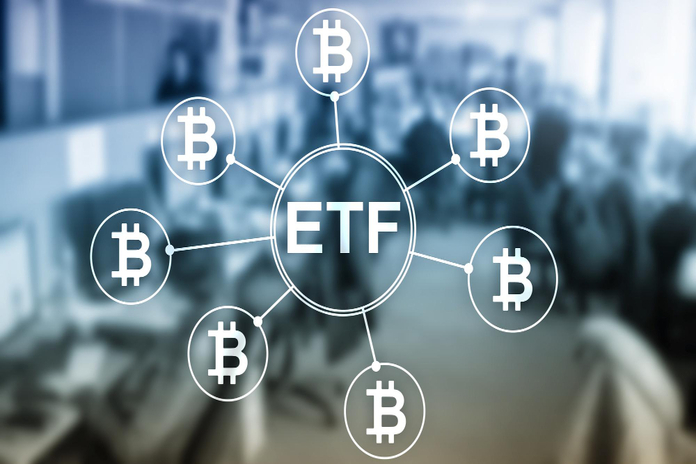Morgan Stanley (NYSE:MS) has made a significant move in the cryptocurrency market by becoming the first major U.S. bank to allow its wealth advisors to sell Bitcoin ETFs to clients. This decision, announced on Wednesday, marks a pivotal moment in the adoption of Bitcoin ETFs by mainstream financial institutions and could lead to a substantial increase in crypto investments among high-net-worth individuals.
Morgan Stanley’s Strategic Move
In a landmark decision, Morgan Stanley has lifted the restrictions on its roughly 15,000 investment advisors, permitting them to offer Bitcoin ETFs to their clients. This move opens up the potential for trillions of dollars in portfolio holdings to be directed toward cryptocurrency investments. As one of the largest banks in the U.S., Morgan Stanley’s entry into the Bitcoin ETF space is expected to significantly influence the market, making it more accessible to traditional investors.
The bank’s advisors now have the green light to introduce products from major players like BlackRock (NYSE) and Fidelity to their clients. This shift is a game-changer for the cryptocurrency market, as it signals growing acceptance of Bitcoin ETFs within the traditional financial sector.
The Impact on the Bitcoin ETF Market
Despite the initial rollout, industry insiders believe that this development has largely flown under the radar. According to Cosmo Jiang of Pantera Capital, the market has not yet fully grasped the significance of Morgan Stanley’s move. “The Bitcoin ETFs have drawn in quite a lot of flows year-to-date, but … if you talk to the large issuers, they’ll tell you they’ve only turned on, call it, 10 to 15% of their distribution,” Jiang explained in a recent interview with Coinage.
Now that Morgan Stanley has unleashed its wealth management teams to actively promote Bitcoin ETFs, the distribution of these products is set to rise dramatically. This could unlock vast amounts of capital as more traditional investors gain exposure to Bitcoin through their existing portfolios.
Potential Ripple Effects Across the Industry
The move by Morgan Stanley could prompt other major banks to follow suit. While firms like Goldman Sachs (NYSE:GS), JPMorgan (NYSE:JPM), Bank of America (NYSE:BAC), and Wells Fargo (NYSE:WFC) have yet to change their policies, they may soon feel pressured to do so to remain competitive. Currently, these banks only allow their advisors to sell Bitcoin ETFs to clients who specifically request them. However, with Morgan Stanley leading the charge, it’s likely that others will reconsider their stance.
The growing interest in Bitcoin ETFs is also reflected in comments made at industry events. At a recent Bitcoin Conference, Bloomberg’s James Seyffart asked BlackRock’s Head of Digital Assets, Robert Mitchnick, about when he expected large banks to fully embrace Bitcoin ETFs. Mitchnick suggested that such a move was likely within the year, anticipating that the fourth quarter could see further developments.
A New Era for Cryptocurrency Investments
Morgan Stanley’s decision to empower its wealth advisors to sell Bitcoin ETFs represents a significant shift in the financial industry’s approach to cryptocurrency. By integrating these products into their offerings, the bank is not only responding to increasing client demand but also positioning itself as a leader in the evolving financial landscape.
This move could have far-reaching implications for the adoption of cryptocurrencies as a mainstream investment. As more high-net-worth individuals gain exposure to Bitcoin through ETFs, the market could see a substantial influx of capital, driving further growth and stability.
For now, all eyes are on Morgan Stanley as it sets the stage for what could be a transformative period for both the bank and the broader cryptocurrency market. As other financial institutions watch and respond, the landscape of crypto investing is poised for significant change, with Bitcoin ETFs at the forefront of this new era.
Featured Image: Freepik




